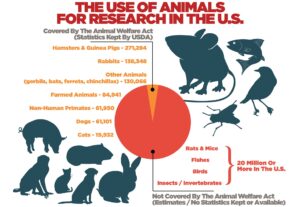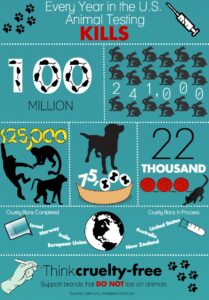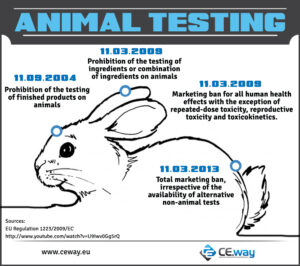Animal Testing Should Be Banned Essays and Research Papers
12 essay samples on this topic
Essay Examples
Essay topics
Overview
Animal Testing is Immoral and Unnecessary
Animal Testing
Animal Testing Should Be Banned
Cruelty to Animals
Reasons to why Animal Testing Should Be Banned
Animal Testing
Animal Testing Should Be Banned
Cruelty to Animals
Animal Testing is Animal Cruelty
Animal Testing
Animal Testing Should Be Banned
Cruelty to Animals
Animal Testing vs Human Testing
Animal Testing
Animal Testing Should Be Banned
Charles Darwin
Should Animals Be Used for Research and Testing? Argumentative Essay
Animal Testing
Animal Testing Should Be Banned
Cruelty to Animals
Animal Testing Should be End
Animal Testing
Animal Testing Should Be Banned
Cruelty to Animals
Save the Animals: Stop Animal Testing Argumentative Essay
Animal Testing
Animal Testing Should Be Banned
Animals Rights
Animal Experimentation Should Not Be Banned. Argumentative Essay
Animal Testing
Animal Testing Should Be Banned
Medicine
Animal Testing for Drugs Argumentative Essay
Animal Testing
Animal Testing Should Be Banned
Drugs
Animal Testing Is Cruel
Animal Testing
Animal Testing Should Be Banned
Animals Rights
Cruelty to Animals
Check a list of useful topics on Animal Testing Should Be Banned selected by experts
Topics and ideas about Animal Testing Should Be Banned
Save the Animals: Stop Animal Testing
Science, Treatments and Animal Testing
Animal Testing in Cosmetics
Animal Testing is a Cruel and Useless
Animals Able to Live a Life as Free as Human Beings
Animal Testing is Animal Cruelty
Why Animal Cruelty is Horrible
We are Qualified for our Social Liberties
Only Invertebrate Animals are Used
Animal Testing for Medical Purposes
This Kind of Testing is being Unjustified
Benefits of Animal Testing
Free from External Control or Domination
How Animal Testing Effect on Medicine
About the Animal Rights
Psychoactive Drug Testing on Animals
Should Animals be used in Medical Research?
Effects of Animal Testing and Alternatives
Animal Testing and Environmental Protection
Animal Testing and the Reasons Why It Should Be Illegal
The Principles of the Animal Testing From the Human Perspective
Animal testing helps to gauge a drug’s or product’s potency and side effects.
Drugs are used on animals before deeming fit to be used by humans.
People hurt animals in research labs on a daily basis.
It is a pressing matter, and hence we need to discuss about animal testing.
You can buy cruelty-free products and stop using animal tested products.
information
There are two good reasons for stopping animal testing.
1. It’s cruel.
Most product safety tests are done on animals without anesthesia or analgesia, and toxic substances can cause tremendous suffering over a long period of time. Even if regulations include minimum standards for gentleness, they cannot eliminate the fear and distress that laboratory animals experience on a daily basis.
2. It’s inefficient.
The biochemistry, physiology, size, and lifespan of animals vary, depending on the species (and even the breed), and can affect the toxicity of the substances being tested. Substances that are safe for mice or rats may not be safe for humans and vice versa. Some chemicals approved as safe after testing on animals have turned out to be harmful to humans, so their use has been discontinued.
There is no doubt that there have been tremendous changes in the last twenty years regarding animal testing.
The public is much more aware of the unreliability of animal experimentation and the cruelty animals have to endure. Non-animal test methods have become more sophisticated and are being used more frequently, and many companies are seeing the commercial and scientific sense in not using animals in product testing.
In the European Union, India and Israel, the use of animals in testing cosmetic products is already banned, and other countries welcome such actions. Nevertheless, there is still a lot of work to be done. There are five reasons for this:
A global marketplace means that tests banned in one country may be required in other parts of the world (e.g., China requires cosmetic products to be tested on animals).
Environmental regulation requiring testing of older ingredients has created new problems (the EU technical regulation “Procedure for State Registration, Examination and Licensing of Chemicals” more than doubled animal testing between 2011 and 2014).
Although most people now agree that product safety testing without involving animals is preferable, both humanely and scientifically, the development of alternative testing methods, to replace animal testing methodology, is moving rather slowly.
Where alternative non-animal testing methods emerge, the regulatory approval process for tests is always difficult and very slow.
Even where alternative non-animal tests have proven effective, they cannot be used if they are not mandatory or if toxicologists are unaware of them.
Key Theses
The Lush Prize has four key theses:
1. animal testing lacks humanity and scientific justification.
Approximately 115 million animals are used in experiments around the world each year, many in very great pain. Tests for (chemical) toxicity of pharmaceutical products in rodents predict toxicity in humans only 43% of the time. 92% of new drugs tested on animals do not make it to market, mostly because of unexpected side effects or ineffectiveness when used in humans.
2 Toxicity testing should be based on reliable methods, and without the use of animals.
The U.S. National Research Center welcomes the shift from animal testing to 21st Century Toxicology in order to “speed up toxicity testing, make the process cheaper, and have direct relevance to human exposure.”
3. campaign and lobbying initiatives should focus more on 1R rather than 3R
Many tests described as “alternatives” to animal testing actually use animals, such as: using fish and invertebrates; killing animals to obtain their cells and tissues; animal serums. Lush Prize work is aimed at replacement (1R), not improvement or reduction (2R).
4. The work of the Lush Prize is aimed at ending animal testing.
The Prize is designed to accelerate the introduction of non-animal testing, especially in the testing of consumer products and ingredients for toxicity. This is done by providing a £250,000 cash fund (plus additional funding for young researchers in Asia and the Americas) to reward effective projects and individuals working around the world in five areas of science and participating in the campaign.
Videos about Animal Testing Should Be Banned
- Top 5 Things About Animal Testing You Should Know
https://www.youtube.com/watch?v=Goyah_5ZT2A
2. Animal Testing Pros And Cons
https://www.youtube.com/watch?v=QwzofzcsaVw
3. What If We Stopped Animal Testing?
https://www.youtube.com/watch?v=nNKRgwHJumM
Interesting infographics about Animal Testing Should Be Banned
- The Use of Animals for Research in the U.S.

2. Every Year in the U.S. Animal Testing Kills

3. Animal Testing


